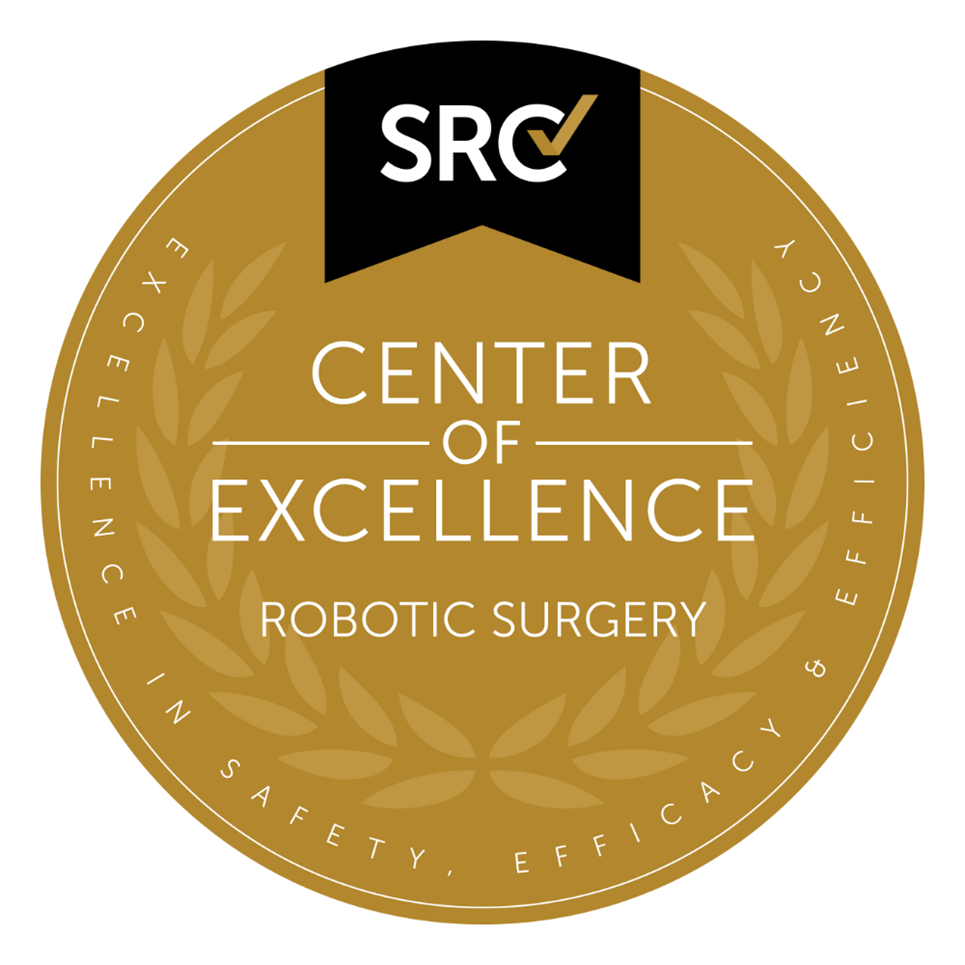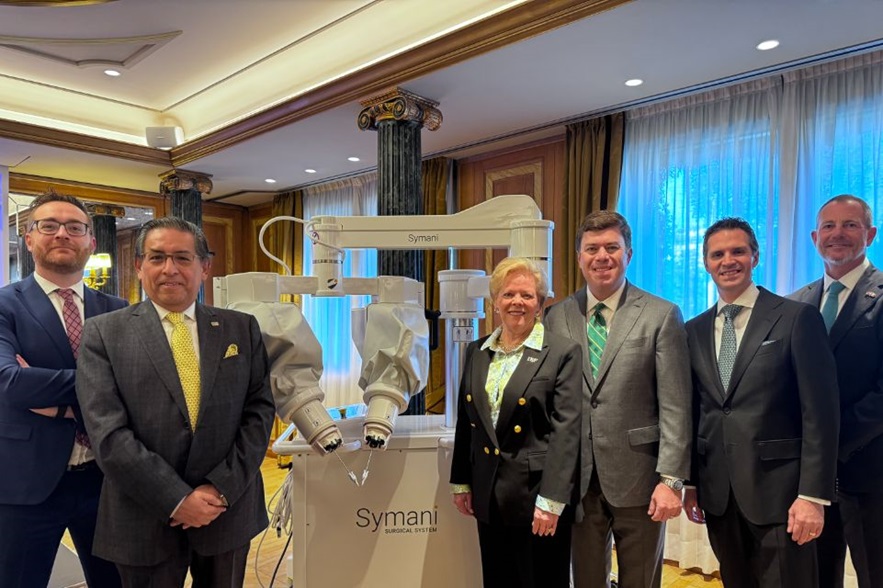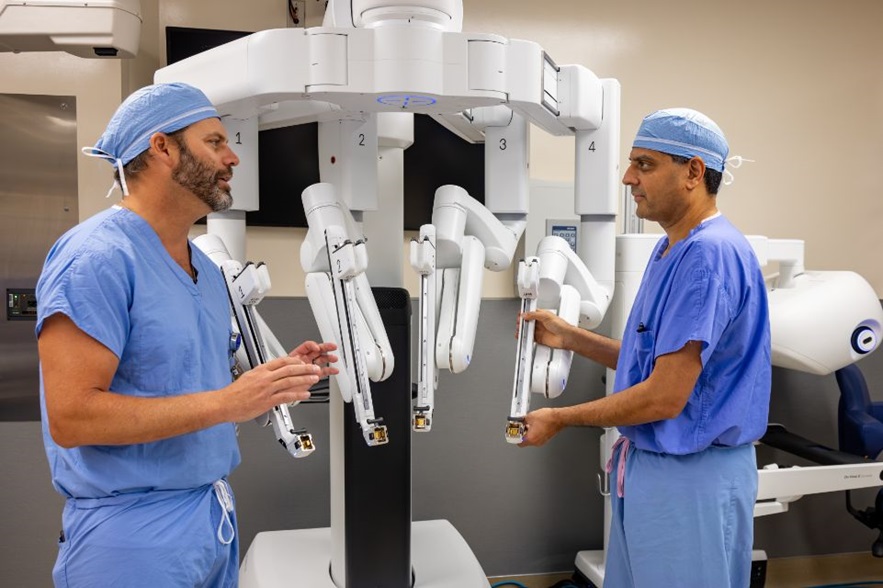Tampa General Hospital offers robot-assisted surgery for a number of surgical procedures. Called the da Vinci® Surgical System, this system provides the surgeon with enhanced surgical precision, increased range of motion, improved agility, enhanced visualization and easier access to very confined areas of the body while taking a minimally invasive approach during surgery. Benefits for patients include shorter length of stay, less pain, lower risk of infection and quicker recovery.
Robotic surgery is an excellent option for many people in need of a surgical procedure. Upon hearing the phrase “robot-assisted surgery,” many patients become concerned that a robot will be performing their surgery. That’s actually not the case. Rather than a robot taking charge of the procedure, the surgeon maintains control the entire time, making any necessary incisions and then directing the robot’s movements from a nearby computer.
Conditions Treated
Although robots can be used when performing certain traditional open surgeries, they’re much more common with minimally invasive procedures (ones that require smaller incisions). Robotic techniques can be used in a seemingly endless list of procedures, from kidney stone removals to coronary artery bypasses.
Common types of robotic surgeries include:
- Gynecologic surgery
- Prostate surgery
- Head and neck surgery
- Colorectal surgery
- Gastrointestinal surgery
- Cardiac surgery
- Orthopedic surgery
Procedure Details
The steps involves in robot-assisted surgery will vary from one procedure to another. However, in general, a surgeon will:
- Make small incisions in the patient’s body
- Insert a tiny camera and miniature instruments
- Manipulate those tools through a nearby computer with master controls
While sitting at the computer, the surgeon has the benefit of viewing a greatly magnified, high-resolution image of the patient’s body. And as the surgeon moves the controls, the machine mimics the movements in the patient’s body, allowing for increased precision, flexibility and range of motion.
What to Expect
In many cases, using robots enables surgeons to perform procedures using minimally invasive techniques, which offer the following benefits:
- Decreased pain
- Reduced risk of complications
- Shortened recovery time
- Less scarring
Even with these benefits, robot-assisted surgery can still carry the risk of infection and other complications. Your physician will be able to provide you with further information about the risks associated with the specific procedure you’re having performed.
Effectiveness
While outcomes will vary based on a number of different factors—such as the procedure being performed, the condition being treated and the patient’s age and overall health—robot-assisted surgery is generally very effective. The robotic and minimally invasive surgeons at Tampa General Hospital perform a wide array of robotic surgeries using the advanced da Vinci® Surgical System.




